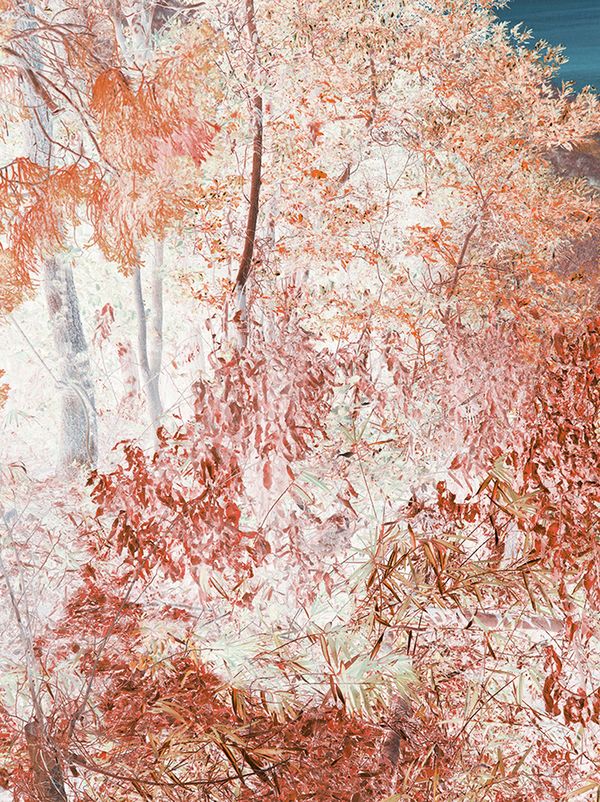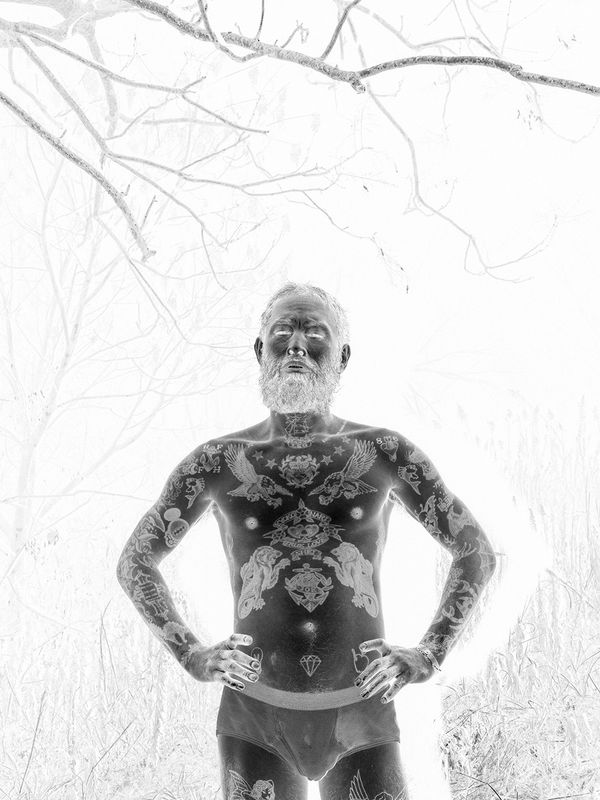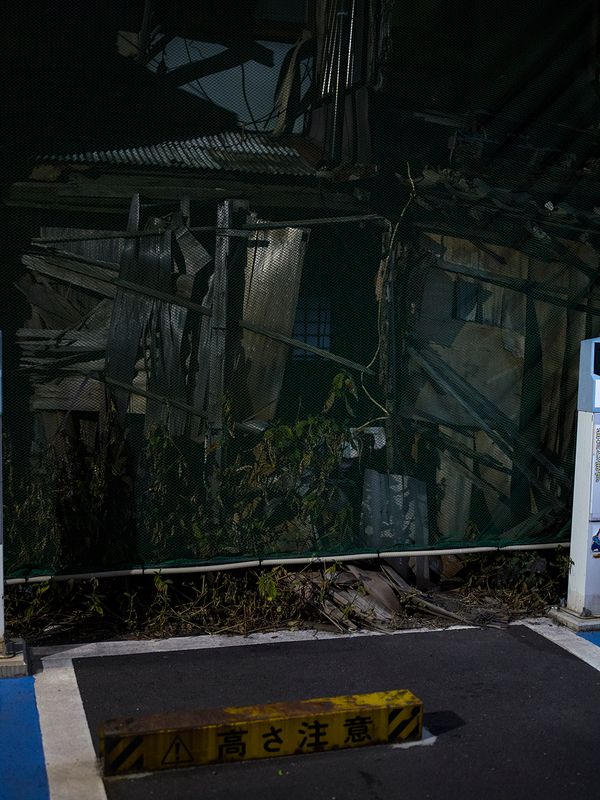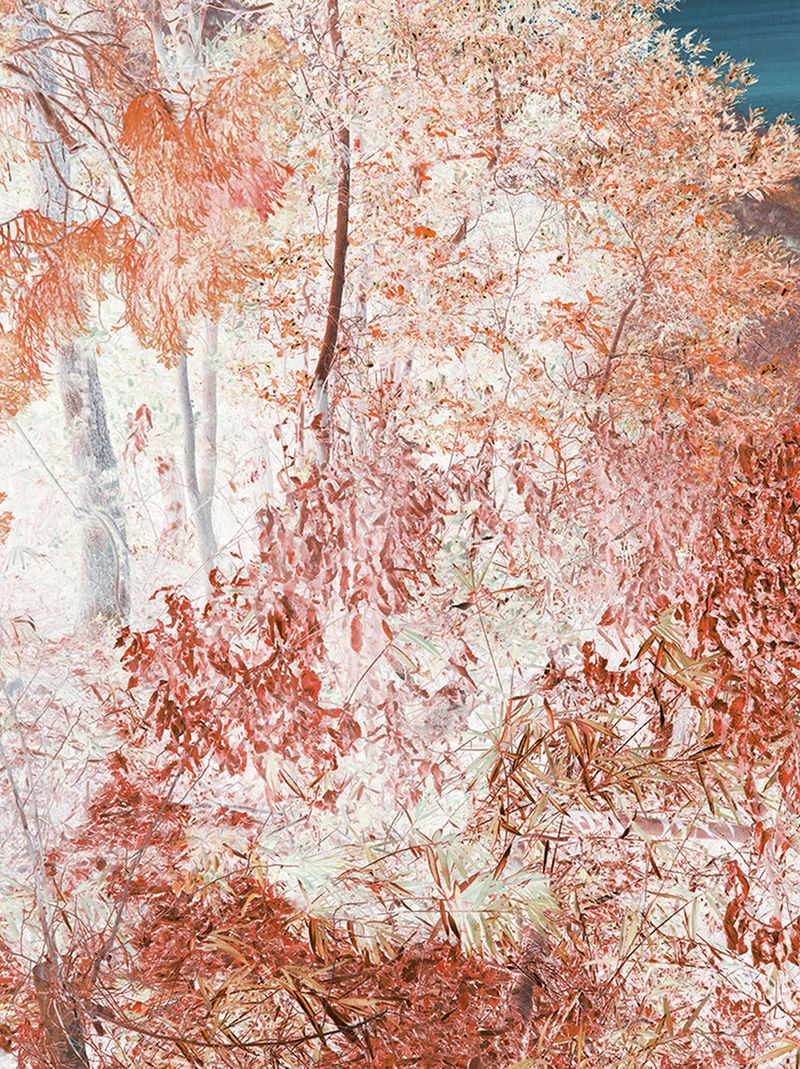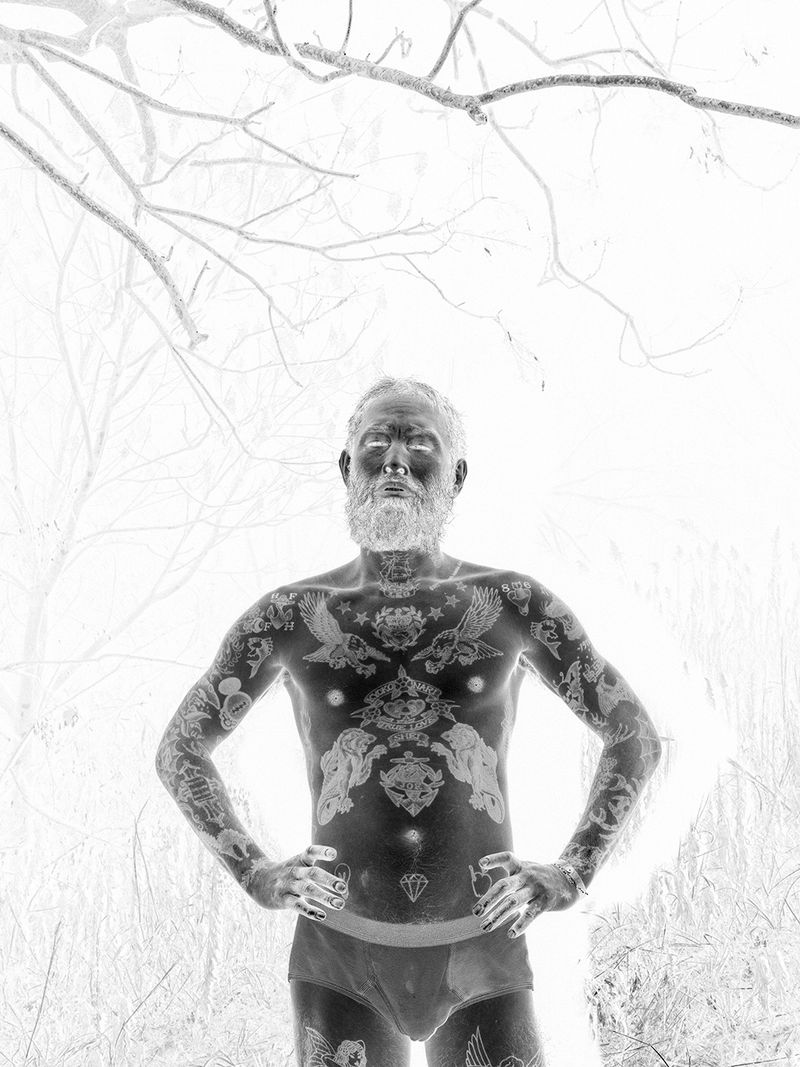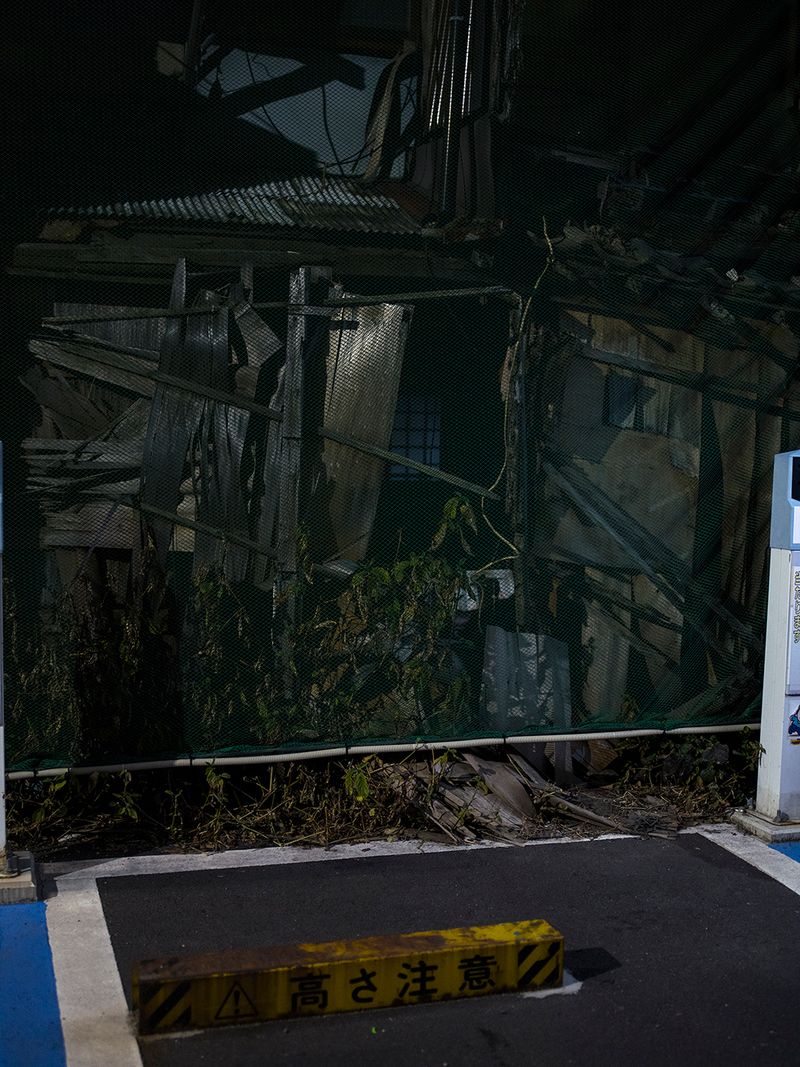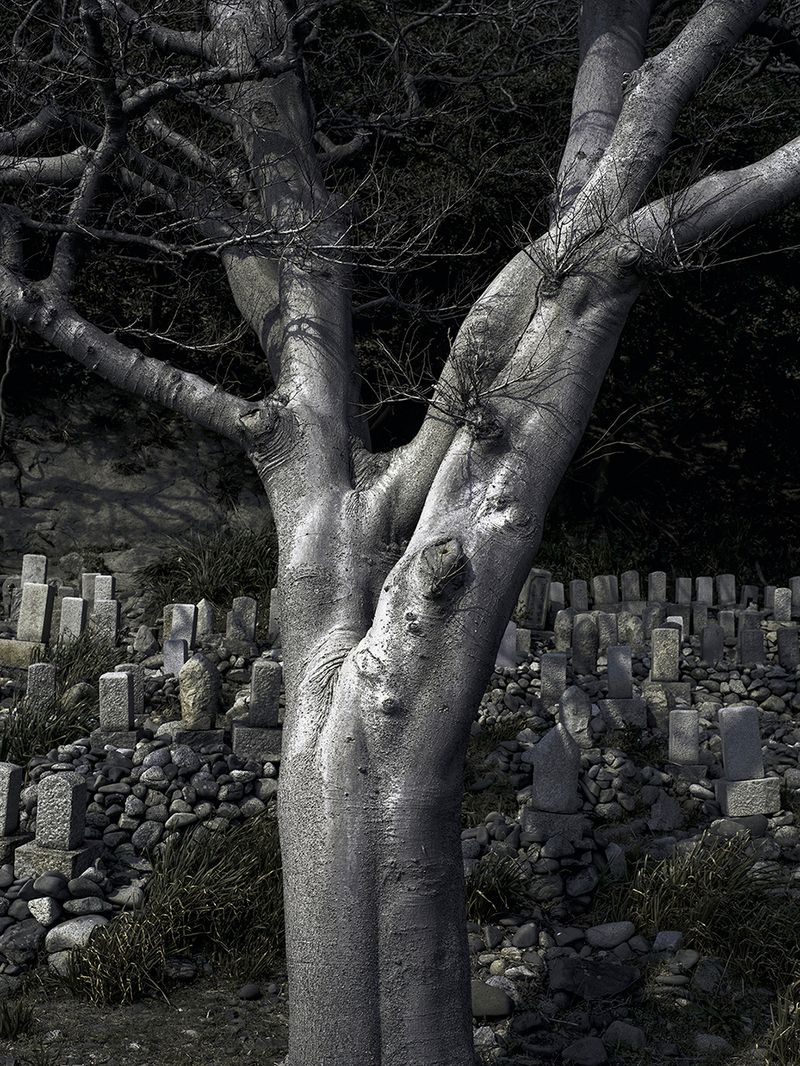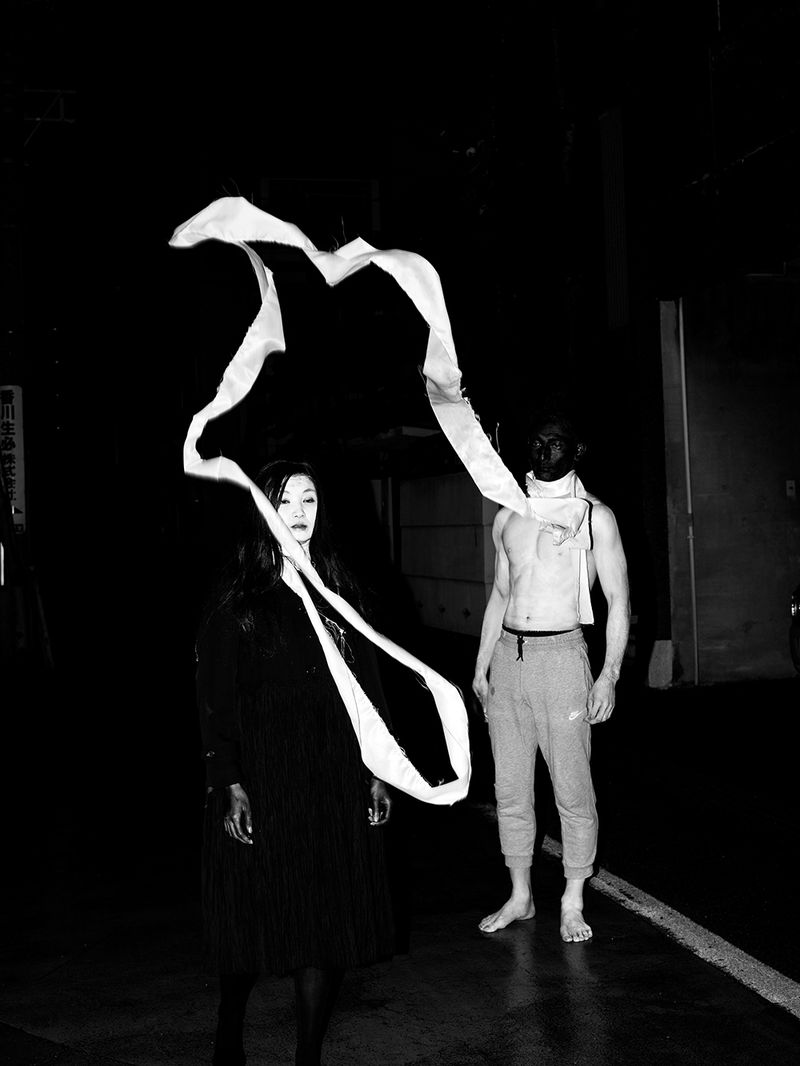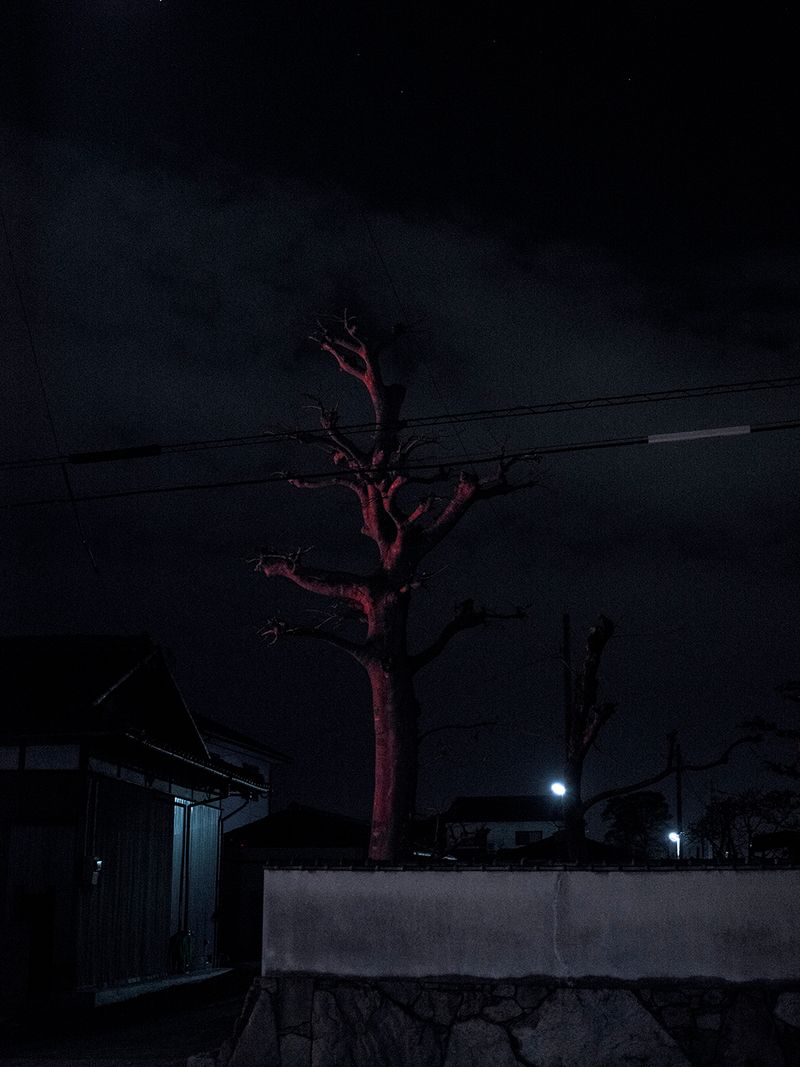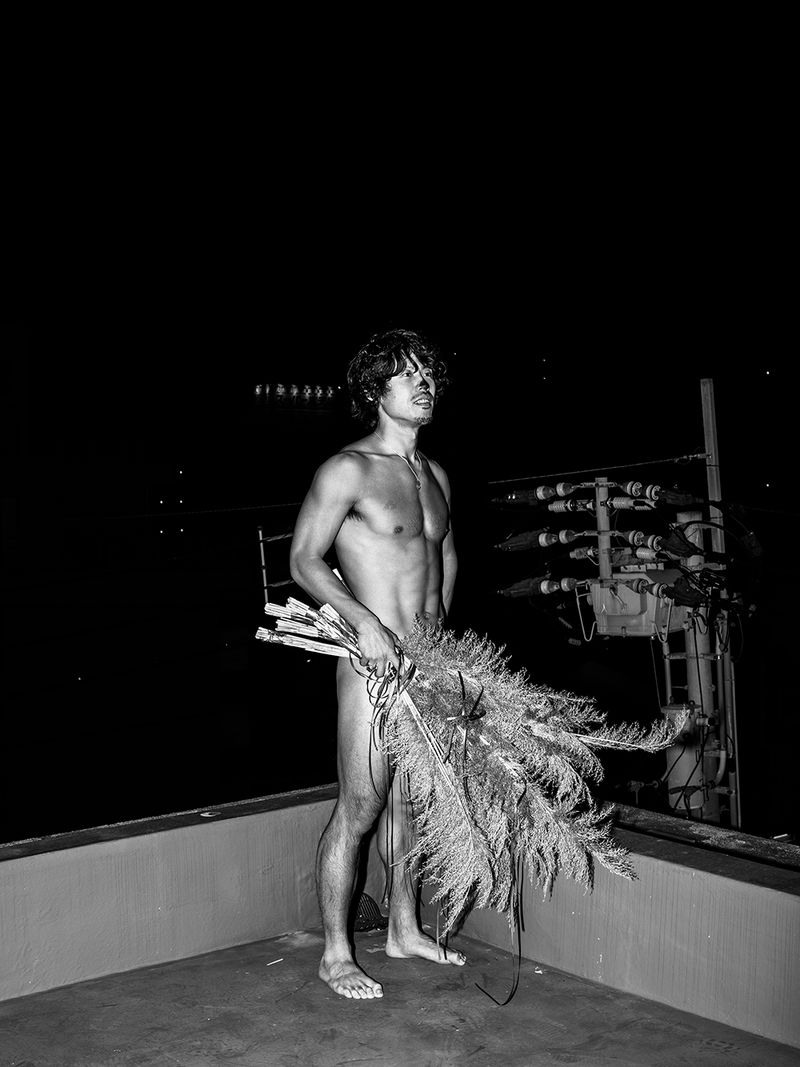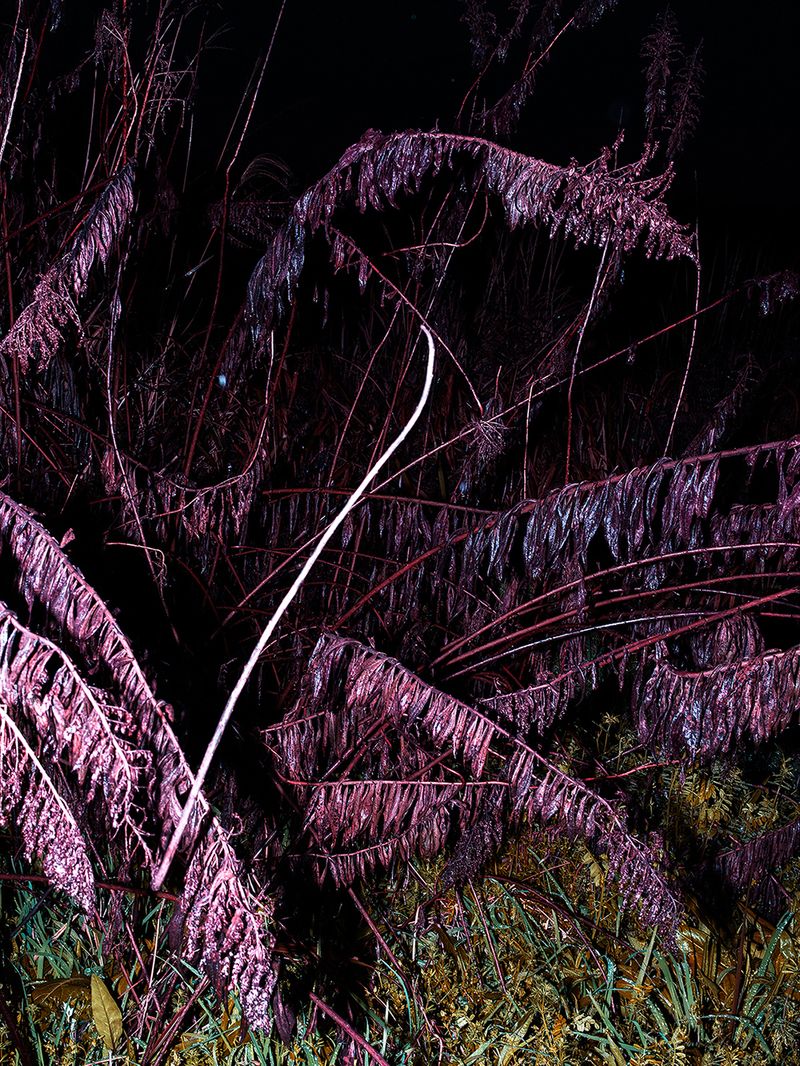A Spiritual Journey of Self-Reflection Across Japan
-
Published2 Sep 2019
-
Author
Guided by the mythologies and natural landscapes of the Kagawa region in Japan, Łukasz Rusznica uses harsh flash and amplified lighting to capture elements from folkloric tales and legends of the past to offer a dream-like representation of the country.
Guided by the mythologies and natural landscapes of the Kagawa region in Japan, Łukasz Rusznica uses harsh flash and amplified lighting to capture elements from folkloric tales and legends of the past to offer a dream-like representation of the country.
If I had to look for one word to describe my practice, I would say "slow". I become obsessed with subjects that keep coming back to me. I rework my experience and as a result I discover processes taking place within me and things I want to say etc. All of this is possible through slow work on a book or an exhibition. I focus on the process, on wandering around, getting lost and finding myself. It might sound awfully romantic, but this is how I work. Mistakes and dead ends are my work companions. The process is crucial and requires time, but devoting your time to something brings tangible results. It allows you to move from point A to point Z, which might be a place you did not envision at the beginning of the road.
I would not call myself a formalist, yet I think this aspect is also important to me - that colour and shape work together and whisper to my mind through my eyes. In other words, I rather think in terms of an image and less of a photograph. I focus on interpretation, and not objective truth. I started Subterranean River in 2016 when I was invited to the "European Eyes on Japan" artist residency. I began by studying the pure visuality of Japanese graphics. I was feeding my eyes with these images and slowly building my own imaginarium. I then came back to Poland and put the photographs away for a year so that my experience could air out from them, they could detach themselves from any specific events and I could see them at ease. The following year I worked on the book - sometimes very intensively, sometimes completely letting it go. In retrospect, I know that this whole trip seriously messed up my nervous system, somehow turned my senses up and gave me a kind of hyper-aesthesia, which became the basis for my thinking about the book. Ultimately, the keyword here is "empathy" - a bittersweet mixture of you and the world / another person / a tree when you start feeling compassion or closeness.
People ask me about Shinto - an ethnic religion of Japan - and my relationship with this form of spirituality. Well... it is a very complicated topic and I have to find a way to wriggle out of it elegantly. I am not a voice of Shinto, but rather I am "using" some symbols and narrations connected with Japanese folklore, and thus with Shinto (though also with Buddhism), to talk about what is elusive and internal. Perhaps it is easier for us / you to call it Shinto than to admit that it is something we carry in ourselves: the moisture and darkness in ourselves, the hormonal singing of the body, the blood, the nature. Even if I admit that Norinaga Motoori's description of Kami has become my description of nature’s divinity and I agree with it - although maybe I shouldn’t expose myself like this - still I am not Shinto.
Words and Pictures by Łukasz Rusznica.
Łukasz Rusznica is a photographer, curator, and educator based in Wrocław, Poland. Since graduating in cultural studies from the University of Wrocław, he has exhibited his works in galleries and museums around the world. He was the winner of Griffin Art Space Prize - Lubicz 2017 for the best portfolio at Krakow Photomonth 2017. Rusznica currently runs a photography gallery, Miejsce przy Miejscu, dedicated to promoting emerging photographers from Poland and abroad. Find him on PHmuseum and Instagram.
---------------
This feature is part of Story of the Week, a selection of relevant projects from our community handpicked by the PHmuseum curators.
